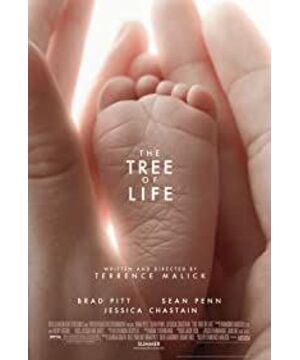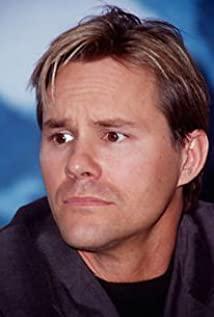If "impermanence" is a threshold in life, how to understand and overcome these thresholds is the most important issue that human life must face in order to exist and continue. To answer, one had to turn to religion. Therefore, helping people solve and face impermanence is an important key to the existence and continuation of religious beliefs, and it is the primary task to help people get rid of suffering.
Coincidentally, both last year and this year's Palme d'Or winners at the Cannes Film Festival took the theme of "life is impermanent", and each interpreted the joys and sorrows of life and the separation of life and death from the perspective of religion. Among them, last year's "The Past and Present of Uncle Pommy" answered the impermanence of life from the perspective of Eastern Buddhism, while this year's "Tree of Life" answered from the perspective of Western Christianity.
The reason for "the impermanence of life and death"
In the Buddhist point of view, the world is like a torrent, all people and events are some bubbles on the water, the accidental product of the continuous surging of the torrent, and no bubble can float on the water forever. free from shattering. In other words, impermanence is the "essence of life" and the law by which the world operates. In the Christian point of view, the ups and downs of life come from God, and those impermanent blows are "trials imposed by God" to test whether people can abandon human nature and approach divinity to the greatest extent.
The reason
for "continuing life" is just to provide meaningful answers for the impermanence of life and death, joys and sorrows, etc., but it is not enough to make people have the courage to continue life. And the inevitability is doomed to lose the courage of one's life. Therefore, a mature and acceptable religion must also give a strong reason for people to look down on impermanence and continue to live active lives. Among them, Buddhism gives reincarnation and nirvana, while Christianity gives final judgment and eternal life.
As far as Buddhism is concerned, the soul is immortal and reincarnated. Therefore, although impermanence is the essence of life, this life is only a transient transition, and the joys and sorrows in it are even fleeting and illusory, and there is absolutely no need for people to When the momentary suffering and happiness are in the heart, instead, we should devote ourselves to the cultivation of our own mind and morality, in order to achieve Nirvana and completely get rid of this samsara destiny full of impermanent suffering.
As for Christianity, it says that there will be a judgment at the end of life and the end of the day, and those who pass the trial on earth will enter heaven and gain eternal life after the judgment. All kinds of gains and losses in the world come from God, and the impermanent blow is God’s test for people, testing whether people have firm belief in God, whether they abandon the evil in human nature, and whether they insist on walking on the road closer to divinity. .
Therefore, the immortality of the soul in Buddhism and the immortality in Christianity allow people to look down on the impermanence of life, and not be overwhelmed by grief when facing the death of a loved one or oneself. There is still a chance to reunite with a loved one. And because of Nirvana and Heaven, people not only need not be too sad in the face of setbacks, but also should be stronger and braver, and face them positively, in order to ensure that they are free from pain and reunited with their loved ones. Religion in
"The Tree of Life"
is a conceptual thing full of spirituality, abstract and vague. It is inherently difficult to transform the above-mentioned religious outlook on life into a movie and impress the audience, and it is often necessary to use very strong imagery techniques Arouse the audience's spiritual feelings. In "Uncle Pommy's Past and Present Life", the film starts from Uncle Pommy, a man facing death, and extends the storyline in sequence, up, down, left and right. First, the deceased wife in this life and the son who turned into a hairy animal return to accompany him. , followed by bringing out the past and future lives of Uncle Pommy through various dreams. The film uses this magical narrative style and circular expression to create an oriental life story and meaning core with an immortal soul and endless reincarnation.
In contrast, "The Tree of Life" is about a Western view of life, which believes that human life originates from God's creation, goes through various trials in the world, and finally enters heaven and reaches eternal life. Therefore, "The Tree of Life" adopts a linear narrative method, which is divided into three parts to deduce "the existence and greatness of God", "the fragility and trial of human nature", and "the future of eternal life" in sequence. The film uses the life story of a family of five to connect three parts. Through the experience of this family of five, it expresses the trials and choices of good and evil, humanity and divinity faced by people in the world.
In addition, the film also uses the "Book of Job" in the "Bible" as the introduction and the core of the story. "The Book of Job" tells the story of Job's various trials, but under the guidance of God, he eliminated the evil of human nature. , embark on the path of pursuing divinity, and finally understand the meaning of trials and witness the greatness of God. "The Tree of Life" is actually a modern life story to present the main purpose and meaning of "Job".
The existence and greatness of God
Generally speaking, the evaluation of "The Tree of Life" is very polarized. Some people are moved to tears after watching it, and some people criticize the film for being unintelligible. The main point of disagreement is in the first part of the film. , on the expression of "God's existence and greatness". "God" is an image concept. It is inappropriate to capture the existence and image of God in any figurative way. It can only indirectly and abstractly stimulate people's awareness of God's creation through the associations and feelings brought by "God's creation". Faith and reverence for the existence of God.
As a result, in the first 20 minutes or so of the film, what appeared on the screen were such as the birth of the universe, the mountains and oceans of the earth, the ancient dinosaur creatures on land, the native species in the ocean, the cosmic aurora, etc. A common sci-fi image on National Geographic channels, and with the magnificent mass music of the organ, many viewers deeply felt the existence of God, His great power and deep love in creating all things, but many viewers got up at this time. Leave the seat and ask for a refund.
The fragility and trials of human nature After the
first part inspires the audience to feel the existence and greatness of God, the film enters the second part, which presents the various trials and choices people face through the realistic experience of a family of five. The family of five includes parents and three sons, the eldest of whom is named Jack, and this part mainly looks back on the past from his perspective.
Jack's father was a stern and ambitious man, and his mother was a quiet, kind and religious woman. This is an ordinary family of five, with joys and sorrows, ups and downs. When Jack grew up in his youth, he experienced life ups and downs such as the accidental death of his younger brother, marriage, and divorce, and when he entered middle age, he experienced the death of his mother.
From his youth after the passing of his younger brother to his middle age, Jack has become increasingly estranged from his family, and even more conflicted with his father. During this time, Jack succumbed to the desires of human nature and worked hard in the workplace. When the news of his mother's passing comes, Jack feels great sadness and begins to re-examine his past. In this part, in order to show Jack’s wandering change in mood, the camera’s perspective of the film is constantly switched between Jack and God, that is, through the reciprocating push-pull transformation of the camera’s depression angle and high elevation angle, and the hand-held camera between the characters and the background The rapid passage of time highlights the fragility and insignificance of Jack as a "human" and the strength and greatness of a "god" in the face of the impermanence of life.
Jack's memories of the past began when he was born. As time went on, he went through infancy, childhood, and adolescence. During this period, he experienced love for a kind mother, disgust for a strict father, and two with himself. Incessant friendship and occasional disputes between younger brothers. Jack also experienced the rebellion and violence of adolescence, as well as his father's harshness because of work setbacks, the pride of work achievements, and the regret of being unemployed and weak. It was a growing up experience similar to that of most people, with joys and sorrows, gains and losses. However, no matter how life goes up and down, the love between family members is always closely linked to each other.
The future of immortality
When looking back on his memories of growing up, Jack re-felt the overriding emotion between his relatives, and was surprised that he had succumbed to the selfishness and vainness of human nature on the road of life, deviating from love, faith, and selfishness. The pursuit of divinity. Just when he realized this, Jack felt the call of divinity, which put him suddenly in the realm of immortality, reunited with his younger brother, his parents, and many people he knew and didn't know. Finally, Jack understands and appreciates love, trials, and eternal life. Finally, he no longer feels sad about the loss of his younger brother and mother, nor is he angry with his father's strictness and stubbornness. His future life is full of peace and confidence. .
■Because the theme of the film is to explore the trials of human nature and the pursuit of eternal life from the perspective of Christianity, "The Tree of Life" has a very strong religious connotation, and the intention to exalt and praise Christianity is also very obvious and straightforward. "The Tree of Life" is a movie that makes people "watch the plot", rather than a movie that makes people "feel the divinity".
If you only comment on the film itself, this film is indeed full of rendering power in the way of moving the mirror, but if you look at the religious propaganda film, no matter whether it is the soundtrack of the pipe organ to set off the momentum, the "God-Man- It is a matter of cliché to describe the narrative in the order of "comprehension", or to present the existence and greatness of God in terms of the universe and the state of life from ancient times to the present. Therefore, it is reasonable for everyone to hold a polarized attitude in this work.
View more about The Tree of Life reviews











